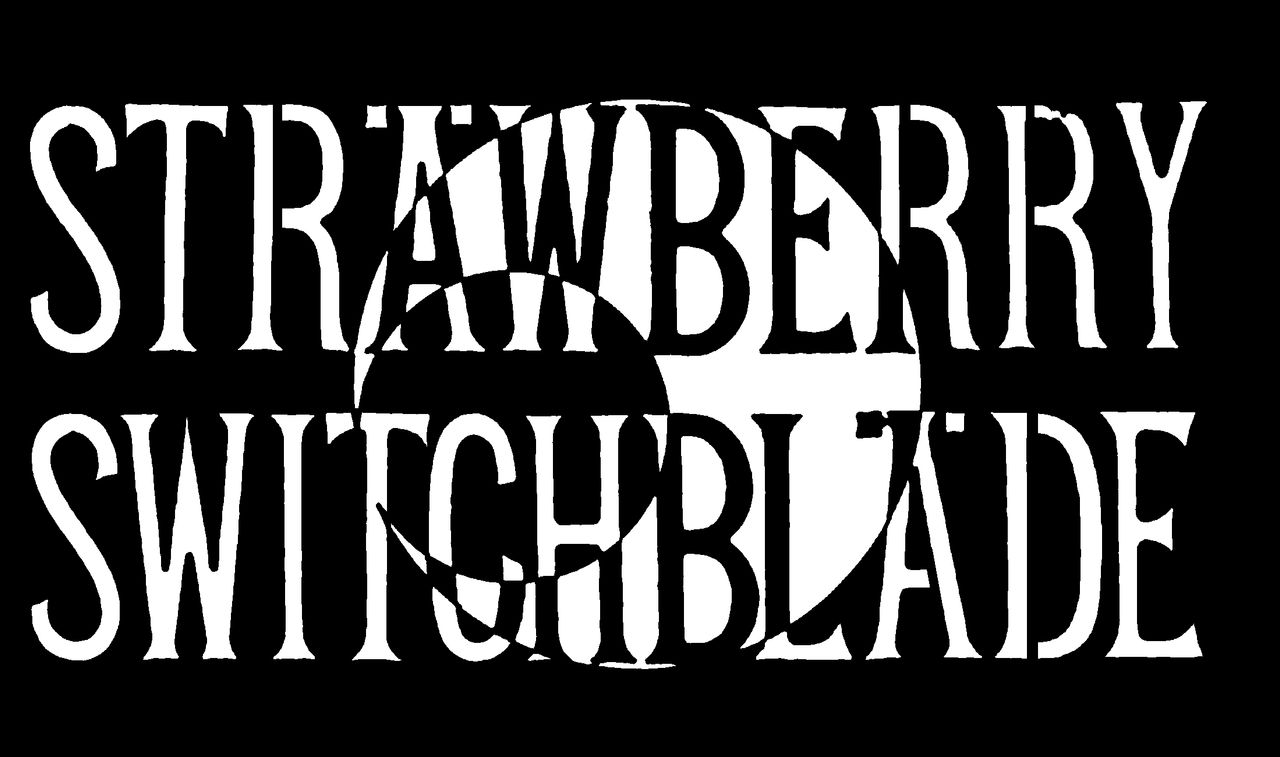The Guardian
14 April 2015
 Cult heroes: Strawberry Switchblade – the clue was in the name
Cult heroes: Strawberry Switchblade – the clue was in the name
The duo of Rose McDowall and Jill Bryson projected an image that was deceptively bright, all pretty bows and polka-dots, but their minds were dark.
Rose McDowall’s career has followed a typically cult-hero path; like Alex Chilton, she went from pop star to troubled recluse in the blink of an eye. A punk rocker from Glasgow, she was part of the same burgeoning indie scene as Orange Juice. Her first band was the Poems, in which she played drums standing up, just like Maureen Tucker of her beloved Velvet Underground. The Poems did a gig with OJ at the Glasgow College of Technology, during which half of each group appeared on stage and swapped instruments.
It was Orange Juice guitarist James Kirk who named her next outfit, a duo with Jill Bryson, Strawberry Switchblade. With their flamboyant image – all bows and polka-dot dresses – and pop hits like Since Yesterday (No 5 in 1985), they were Smash Hits cover stars. Such was their ubiquity that McDowall remembers being on Oxford Street in London and a group of girls shouting at her: “You’re trying to look like Strawberry Switchblade!”
But there was more to Strawberry Switchblade than met the eye – their name was a clue. “Our image was colourful, but our minds were dark,” says McDowall on the phone from her home in Oxfordshire.
Their self-titled first and only album featured Since Yesterday and other hit singles Let Her Go, Who Knows What Love Is and Jolene, a cover of the Dolly Parton song. But it also included their 1983 debut single, Trees and Flowers, a song concerning Bryson’s agoraphobia.
Other songs on the album, particularly Go Away, 10 James Orr Street and Being Cold, essayed a devastatingly bleak, eerily beautiful brand of mid-1980s pop, all sugar-high vocals, a ponderous pace expressing the heaviness of existence and chord changes of the most exquisitely miserable kind. The phrase “sinister-sweet” seems to have been invented for these wintry ballads.
“I’d love somebody to one day say: ‘She’s the female Leonard Cohen,’’’ says McDowall. “People say: ‘Oh, it’s music to kill yourself to.’ But I love melody, and the beauty of melancholy.”
McDowall and Bryson went their separate ways in 1986 after a falling out.
“I don’t believe in slagging people off,” McDowall says, reluctant to reopen old wounds. “I like Jill, she’s a nice girl. But there were certain problems that were beyond anybody’s control.”
After Strawberry Switchblade, McDowall worked with, among others, Coil, Current 93, Death in June, Nurse With Wound and Psychic TV. She formed another duo, with ex-husband Robert Lee, called Sorrow (check out the harrowingly pretty Let There Be Thorns) and recorded an album of covers, as Spell, with experimental/noise/dark folk musician Boyd Rice, who happened to be friends with Anton LaVey, founder and high priest of the Church of Satan. Then there was the track, Rosemary’s Tears, about the Moors murderers, that she recorded with the Damned.
What happened, Rose?
“The dark side, you mean?” she laughs. “I was always a strange little girl. I believed in magic. I had a lot of experiences that were just so outrageous, so wildly weird, that I knew something else was going on.”
She cites the time she chased her younger brother and he slammed the door in her face so hard that it broke her nose and she screamed so loud “the walls literally burst into flames”. When she was in Strawberry Switchblade, she hated the first note of Let Her Go with such a vengeance that she willed it to catch fire in the studio.
“My mum said I used to speak in tongues,” she recalls. “And I used to have nightmares that would continue while I was awake.”
Things didn’t get too extreme with the Coil/Psychic TV/Throbbing Gristle axis of pop evil, apart from the times Genesis P Orridge tried to lure her into the fellowship of Thee Temple ov Psychick Youth.
“He was always trying to get me to go into the ‘nursery’, as they called it, where they had the dentist’s chair,” she says of the room which was synonymous with sex magick. “But I’m not a Psychick Youth, I’m not a sheep or a follower. I might practise spells but I won’t be part of a coven or anybody else’s ‘thing’. I don’t join groups.”
That’s not strictly true. She worked with Primal Scream, singing backing vocals on Loaded, and she sang with the Jesus and Mary Chain on their recent comeback tour. “They’re my favourite band of all time,” she says. “I came off stage and said: ‘I could die happy now.’”
These days, she lives in the countryside, forced to move out of London after a spate of stalkers. “This one guy – I kept looking round in the street or on the bus, thinking it could be them … or them,” she says. “Then one day, I was pushing my bike up a hill and I got these three slow-motion taps on my shoulder. I thought oh God, turned round, and he said: ‘You know who I am.’ It was really creepy.”
More creepy was the day she nearly got run over and her stalker dived into the road beside her, his rationale being: “If you die, I want to die, too!” Things took a turn for the farcical when she introduced her stalker to the woman stalking Lawrence from Felt and Denim, and sent them both off in a cab. “We thought that would be it, sorted, but instead his stalker started coming to my house telling me not to see Lawrence any more because she was in love with him.”
McDowall, who, improbably, has three grandchildren – she’s now 55 and had her first child at 19 – removed herself from all of this and now lives a semi-reclusive life. However, as much as she hates crowds, she still works. This Saturday, 18 April – Record Store Day – Night School Records is reissuing her version of Blue Oyster Cult’s Don’t Fear the Reaper. There will be a re-release, in August, of her 1989 solo album, Cut With the Cake Knife, followed by reissues of her numerous collaborations.
There is also a headline show on 28 May at St Pancras Old Church in London. Expect eery prettiness to be a leitmotif. And lots of tears.
“Sorrow [the duo] went on tour and often the audience would cry,” says the female Leonard Cohen. “Once, in America, the whole audience were crying. I have never felt so moved. It was the most powerful thing I ever achieved in my lifetime – to actually, emotionally, affect a whole room. I can’t ask for any more than that.”
Paul Lester









